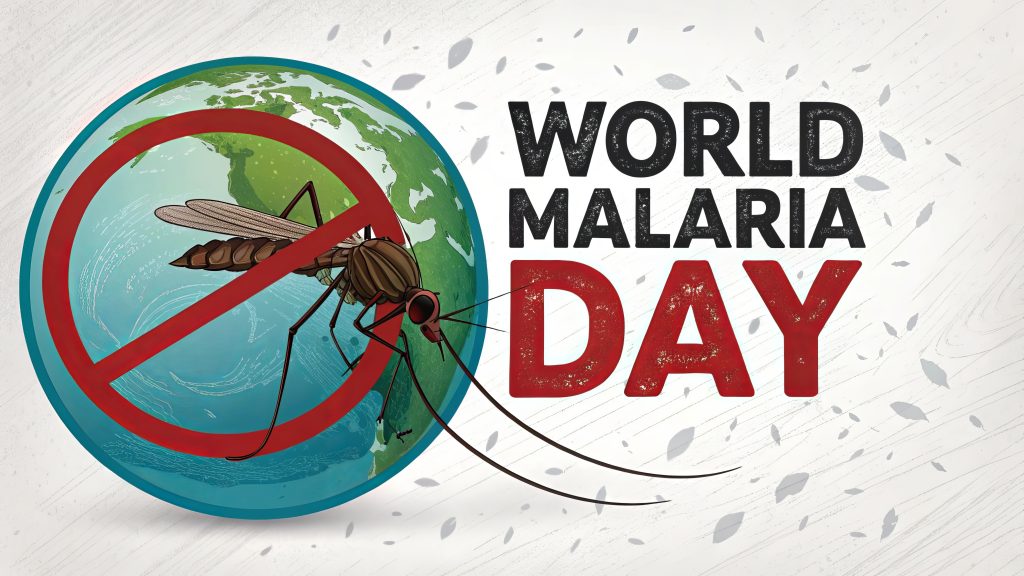Every year, World Malaria Day is observed on 25th April to spread awareness about malaria and how it affects people worldwide. Malaria is a dangerous disease that still impacts millions, especially in tropical countries like India. Even though it can be prevented and treated, many people continue to suffer due to a lack of knowledge and proper healthcare. This is why spreading awareness is so important in the fight against malaria.
Let’s understand why World Malaria Day matters and how we can all help to eliminate this disease.
What is Malaria? [1]
Malaria is a serious disease caused by parasites that spread through the bites of infected female Anopheles mosquitoes. Common symptoms include fever, chills, headache, and body aches. If not treated in time, malaria can become severe and even life-threatening. According to the World Health Organization (WHO), there were about 249 million malaria cases worldwide in 2022, resulting in over 600,000 deaths.
India has made progress in reducing malaria cases, but the disease is still present, especially in rural and tribal areas. Early diagnosis and proper treatment can help prevent complications, but the best way to fight malaria is through prevention.
The Importance of Awareness in Malaria Prevention [2]
One major reason malaria continues to affect so many people is a lack of awareness. Many don’t know how it spreads, how to protect themselves, or when to seek medical help. World Malaria Day plays a key role in spreading this important information to communities worldwide.
Raising awareness helps people take simple but effective preventive measures, such as:
- Using mosquito nets while sleeping
- Wearing clothes that cover the body
- Applying mosquito repellents
- Keeping the surroundings clean to stop mosquito breeding
- Seeking medical help at the first sign of symptoms
By educating people about these easy steps, we can significantly reduce malaria cases and save lives.
The Global Fight against Malaria [3]
Governments and health organizations worldwide are joining forces to eliminate malaria. The World Health Organization (WHO) has set a goal to reduce malaria cases and deaths by 90% by 2030. Many countries have already eliminated malaria, proving that with the right efforts, it is possible.
Efforts to fight malaria include:
- Providing free or affordable mosquito nets and medicines
- Running awareness campaigns in high-risk areas
- Improving healthcare access in rural regions
- Researching and developing better treatments and vaccines
India has also taken significant steps to reduce malaria cases through national programs and health campaigns. The goal is to make India malaria-free in the coming years.
How Individuals Can Help in the Fight Against Malaria
While governments and health organizations are leading the fight against malaria, individuals also play a crucial role. Here’s how you can help:
- Spread Awareness – Share information about malaria with family and friends, especially in high-risk areas.
- Keep Your Surroundings Clean – Mosquitoes breed in stagnant water. Empty water from coolers, pots, and open containers regularly.
- Protect Yourself from Mosquitoes – Use mosquito nets, apply repellents, and wear protective clothing.
- Support Health Initiatives – Encourage vaccinations and malaria testing in your community.
- Seek Early Treatment – If someone in your family has symptoms, ensure they get medical attention quickly.
Even small actions can make a big difference in reducing malaria cases and saving lives.
The Future of Malaria Eradication
The fight against malaria is still ongoing, but there is a hope for future. Researchers are developing better treatments and vaccines to prevent the disease.
WHO’s ‘High Burden to High Impact’ strategy focuses on helping countries with the highest malaria cases. With continuous efforts, improved healthcare access, and global awareness, malaria could one day be completely eradicated.
Conclusion
World Malaria Day is a reminder that malaria is still a serious health concern, but it can be prevented with the right awareness and action. Everyone has a role to play—whether it’s educating others, taking preventive steps, or supporting global efforts.
By working together, we can move towards a future where malaria is no longer a threat. Let’s take action this World Malaria Day and make a difference!
References
[1] https://www.who.int/news-room/fact-sheets/detail/malaria#:~:text=Globally%20in%202023,in%20the%20Region.
[2] https://www.who.int/news-room/fact-sheets/detail/malaria#:~:text=Malaria%20mostly%20spreads%20to%20people,and%20death%20within%2024%20hours.
[3] https://www.who.int/news-room/fact-sheets/detail/malaria#:~:text=WHO%20response,countries%20that%20are%20malaria%2Dfree.





Comments are closed.